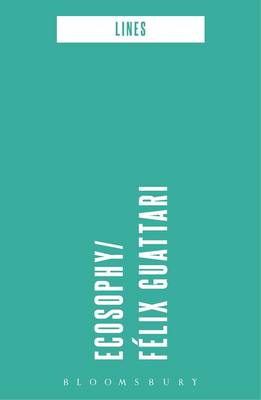Lines
1 total work
Felix Guattari has for too long been in the shadow of his illustrious collaborator, Gilles Deleuze. Ecosophy permits not only the chance to witness the dazzling mind that formed a foundational part of those extraordinary collaborations, but also the opportunity to grasp the extent to which Guattari's own philosophical project deserves to be considered in its own right. Ecosophy is an essential complement to both Guattari's Chaosmosis and The Three Ecologies, as it transforms the ecological into an assemblage of connectivity between aesthetics, creativity and machinic subjectivity that produces a new paradigm for a more ethical and ecologically aware world. It is the most accessible of Guattari's writings and the editor of this collection - Stephane Nadaud - has organized the materials in a manner that not only makes new connections across Guattari's oeuvre but also addresses contemporary disciplinary concerns. English translations of Chaosmosis and The Three Ecologies have laid the foundation for a bona fide field of Guattari Studies, but the third key part of the triad - Ecosophy - was always notable for its absence.
By introducing Ecosophy to an English-speaking audience, for the first time, it is possible to tie the first two books together - creating a hybrid chaosmosis of ecology that fully fuses the finite into the infinite, the human and non-human into their immanent becomings.
By introducing Ecosophy to an English-speaking audience, for the first time, it is possible to tie the first two books together - creating a hybrid chaosmosis of ecology that fully fuses the finite into the infinite, the human and non-human into their immanent becomings.
